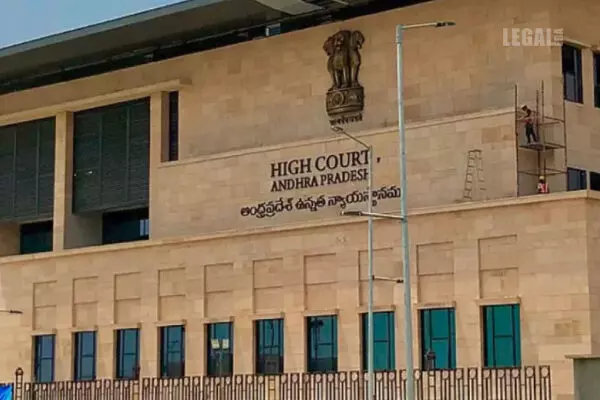- Home
- News
- Articles+
- Aerospace
- Agriculture
- Alternate Dispute Resolution
- Banking and Finance
- Bankruptcy
- Book Review
- Bribery & Corruption
- Commercial Litigation
- Competition Law
- Conference Reports
- Consumer Products
- Contract
- Corporate Governance
- Corporate Law
- Covid-19
- Cryptocurrency
- Cybersecurity
- Data Protection
- Defence
- Digital Economy
- E-commerce
- Employment Law
- Energy and Natural Resources
- Entertainment and Sports Law
- Environmental Law
- FDI
- Food and Beverage
- Health Care
- IBC Diaries
- Insurance Law
- Intellectual Property
- International Law
- Know the Law
- Labour Laws
- Litigation
- Litigation Funding
- Manufacturing
- Mergers & Acquisitions
- NFTs
- Privacy
- Private Equity
- Project Finance
- Real Estate
- Risk and Compliance
- Technology Media and Telecom
- Tributes
- Zoom In
- Take On Board
- In Focus
- Law & Policy and Regulation
- IP & Tech Era
- Viewpoint
- Arbitration & Mediation
- Tax
- Student Corner
- AI
- ESG
- Gaming
- Inclusion & Diversity
- Law Firms
- In-House
- Rankings
- E-Magazine
- Legal Era TV
- Events
- News
- Articles
- Aerospace
- Agriculture
- Alternate Dispute Resolution
- Banking and Finance
- Bankruptcy
- Book Review
- Bribery & Corruption
- Commercial Litigation
- Competition Law
- Conference Reports
- Consumer Products
- Contract
- Corporate Governance
- Corporate Law
- Covid-19
- Cryptocurrency
- Cybersecurity
- Data Protection
- Defence
- Digital Economy
- E-commerce
- Employment Law
- Energy and Natural Resources
- Entertainment and Sports Law
- Environmental Law
- FDI
- Food and Beverage
- Health Care
- IBC Diaries
- Insurance Law
- Intellectual Property
- International Law
- Know the Law
- Labour Laws
- Litigation
- Litigation Funding
- Manufacturing
- Mergers & Acquisitions
- NFTs
- Privacy
- Private Equity
- Project Finance
- Real Estate
- Risk and Compliance
- Technology Media and Telecom
- Tributes
- Zoom In
- Take On Board
- In Focus
- Law & Policy and Regulation
- IP & Tech Era
- Viewpoint
- Arbitration & Mediation
- Tax
- Student Corner
- AI
- ESG
- Gaming
- Inclusion & Diversity
- Law Firms
- In-House
- Rankings
- E-Magazine
- Legal Era TV
- Events
Andhra Pradesh High Court Exempts Central Deposit Yard's Contract Vehicles from Motor Vehicle Tax

Andhra Pradesh High Court Exempts Central Deposit Yard's Contract Vehicles from Motor Vehicle Tax
The Andhra Pradesh High Court, in a recent ruling, stated that the motor vehicles utilised exclusively for the contractual operations of M/s. Tarachand Logistic Solutions Limited within the Central Deposit Yard premises are not subject to taxation under the Motor Vehicles Act.
In the specific case, the petitioner, a logistics company, was granted a contract to manage and store iron and steel materials at the Central Dispatch Yard located in Visakhapatnam Steel Plant, Andhra Pradesh. In adherence to the terms of the contract, the petitioner employed 36 motor vehicles exclusively for fulfilling the contractual obligations. Importantly, these vehicles ceased their operation on public roads starting April 1, 2021.
Despite the petitioner's request for exemption from motor vehicle tax during the contract period, the authorities disregarded their representations and imposed a tax demand. To avoid the seizure of their vehicles and prevent disruption to the operations of Rashtriya Ispat Nigam Limited (RINL), the petitioner reluctantly paid the tax amount under protest.
Following this, the petitioner proceeded to submit a representation requesting an exemption and refund. Their plea, however, was rejected on the basis that Rashtriya Ispat Nigam Limited (RINL) was classified as a government company, falling under the definition of a public place. The petitioner's appeal to the appellate authority faced rejection as well, as they had not filed a stoppage/non-use intimation to the licensing officer. Subsequently, the petitioner sought the suspension of the motor vehicle tax demand for subsequent quarters, but their request was denied. This ultimately compelled them to pay the tax amount under protest.
In evaluating the case, Justice V. Sujatha, presiding over the single-judge bench, referred to Section 2(34) of the Motor Vehicles Act, which defines a public place as a road, street, or other accessible area where the general public has a right to access. The Court observed that the vehicles in question were exclusively confined within the Central Deposit Yard and were not accessible to the general public. Consequently, the definition of a public place, as defined in the Act, did not apply to the Yard in this context.
As a result, the High Court granted the writ petition filed by the petitioner and issued a directive to the respondents. The directive required the respondents to refund the petitioner an amount totalling ₹22,71,700 upon the petitioner's application for the refund.


